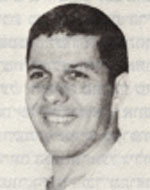Nimrod, son of Dina and Adi, was born on 31.1.1939 in Kibbutz Beit Hashita and studied at the kibbutz school. Nimrod was born in nature and agriculture, and grew up among people who worship the land is their great love. From his childhood he has been attracted to all aspects of field crops and animals, especially in terms of mechanization. He had a natural sense of machines. It was enough for him to look at the machine and feel it to activate it. Was the only child who got a car and drove. He spent all his spare time studying at the farm’s garage. Curiously he would look at the repairmen. Sometimes he would stick his head into the gut of a disassembled engine, and would not put down a screw that did not know his job. A period of special satisfaction for him was the period between his graduation and his army service, during which time he worked hard in fodder and fodder, and he had a good feeling that he was helping to carry the burden: Nimrod was drafted into the IDF in mid-November 1957 and volunteered to serve in the paratroopers. He was also prominent in the army. After basic training, he completed a course for squad commanders and was sent to an officer’s course. Since he contracted pneumonia, he decided not to return to the course. Instead, he demanded – and even managed to – a paratroop patrol. After he was released from regular service, Nimrod returned to the agriculture. Slowly he discovered the qualities that were hidden in him. He began to emerge from the exclusive field of mechanization when he arrived at Kibbutz Neve Or, as a candidate for the third year. (“Third Year” is a year of assistance to young farmers who have completed compulsory service in the army, as is customary in the United Kibbutz Movement). The difficult situation in the young agriculture dictated a new direction for Nimrod. He became involved in agriculture and after a short period of time became the coordinator of the crop. While working in agriculture, he felt that all his previous work in the garage was just a preparatory stage for working in agriculture. Indeed, when he returned to Beit Hashita he demanded to work in cotton and worked on developing agricultural machinery. He began to initiate various improvements and began demanding daring and imagination in areas that had a conservative approach. His head was full of inventions, improvisations and innovations. Nimrod is also blessed with the rare quality of unmediated contact with anyone, anywhere and in every situation. His talent in public relations and his personal charm opened all doors to him. People he met on business matters soon became his devoted friends. It had a rare combination of developed commercial sense with integrity and uncompromising honesty. Thanks to his many talents, Nimrod achieved his childhood dream: to travel abroad, and especially to the United States. When the members of the kibbutz received his ideas for developing the cotton industry, it was natural that he was chosen, despite his lack of fluency in English, to go to Nicaragua, buy cheap and used catapults, and transport them to Palestine. The catapults were brought to Beit Hashita, renovated and sold at a low price to a number of kibbutzim. Anyone who first heard the idea of bringing the catapults from Nicaragua saw it as a dream. But Nimrod, who was quick and decisive in his actions, could no longer be stopped. “Operation Katapot” became a great success. He testified about his talents, which combined many different fields: rich technical knowledge, improvisational ability and the ability to create instant communication. In the Six Day War he participated in the conquest of the Old City of Jerusalem. He escaped unharmed by the reconnaissance unit on the way to capture the Mount of Olives, opposite the Lions’ Gate, where a tank was hit over the Gat-Shamna bridge. The next day he took part in the breakthrough through the Aryeh Gate, continued with the commando unit in the conquest of the Golan Heights, and returned after the victory to the agriculture. In 1972 he was elected to concentrate the factory “metal factory” of the agriculture. He began his new job with a project on which he worked for a whole year and left it at the very beginning, when the war broke out. In the Yom Kippur War, Nimrod took part in the fighting and breaking into the West Bank of the Suez Canal, near the Chinese Farm. On the discovery of heroism in the fulfillmentHis combat role, with his soul, was awarded the “Medal of Valor”. This is what is described in the medal: “A half-track force with Nimrod’s sergeant belonged to him, was caught in front of a brigade compound, which conducted a stubborn war. Four sergeants were injured during the first few minutes and the casualties were many, and during the battle Sergeant Nimrod himself took the half-track to the fire, while he was in awe, and rescued casualties. For this he repeated several times. On the 21st of Tishrei 5734 (October 21, 1973), in the last battle for the “Foxtrot” outpost was hit and killed. Nimrod was brought to eternal rest in the Beit Hashita cemetery and left behind a wife and four children: Amar, Hila, Yoav and Assaf, then a year and a half old, and parents. And members of his kibbutz published a book in his memory that included stories about his many friends, letters he sent from his professional tours around the world, and photographs he made.
